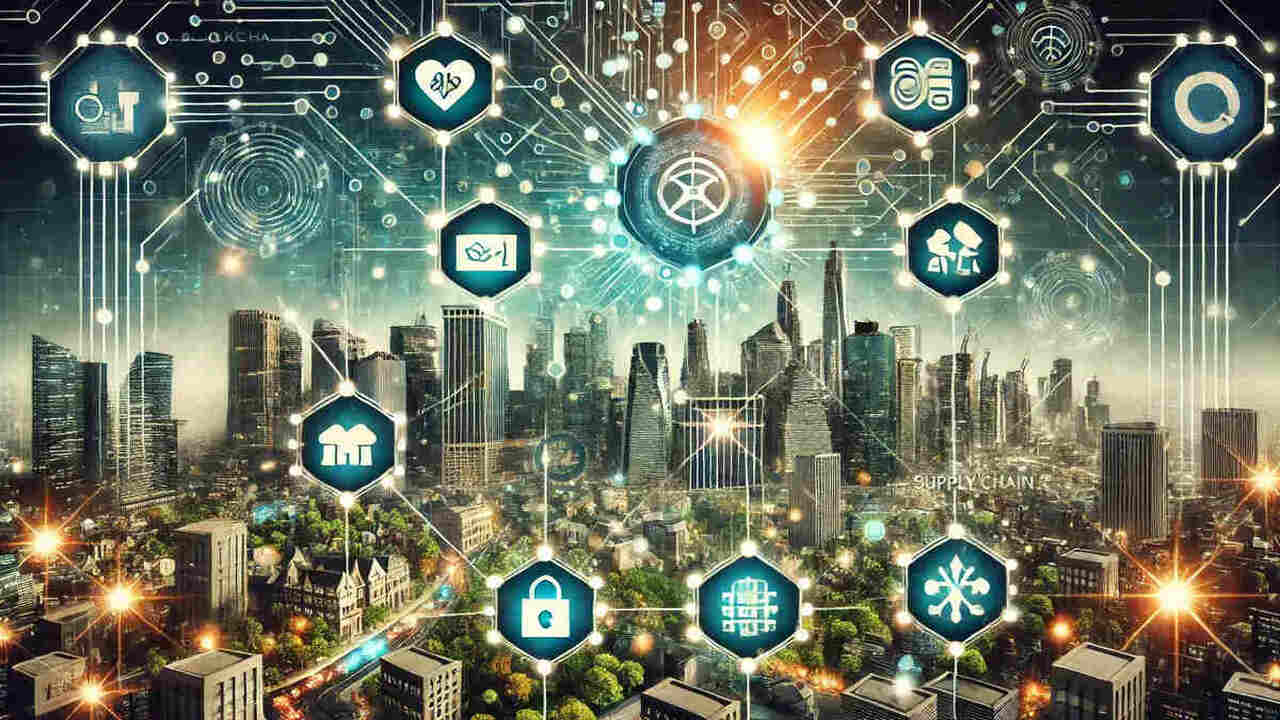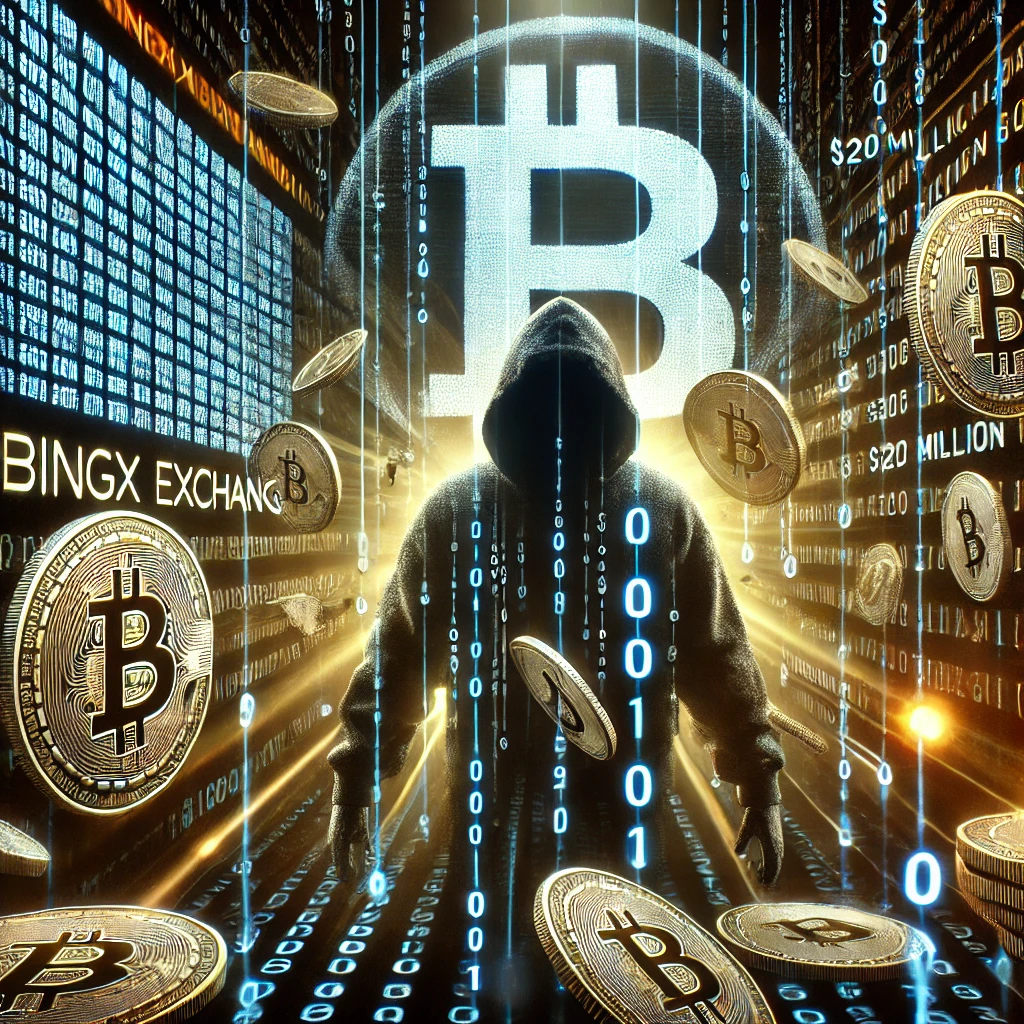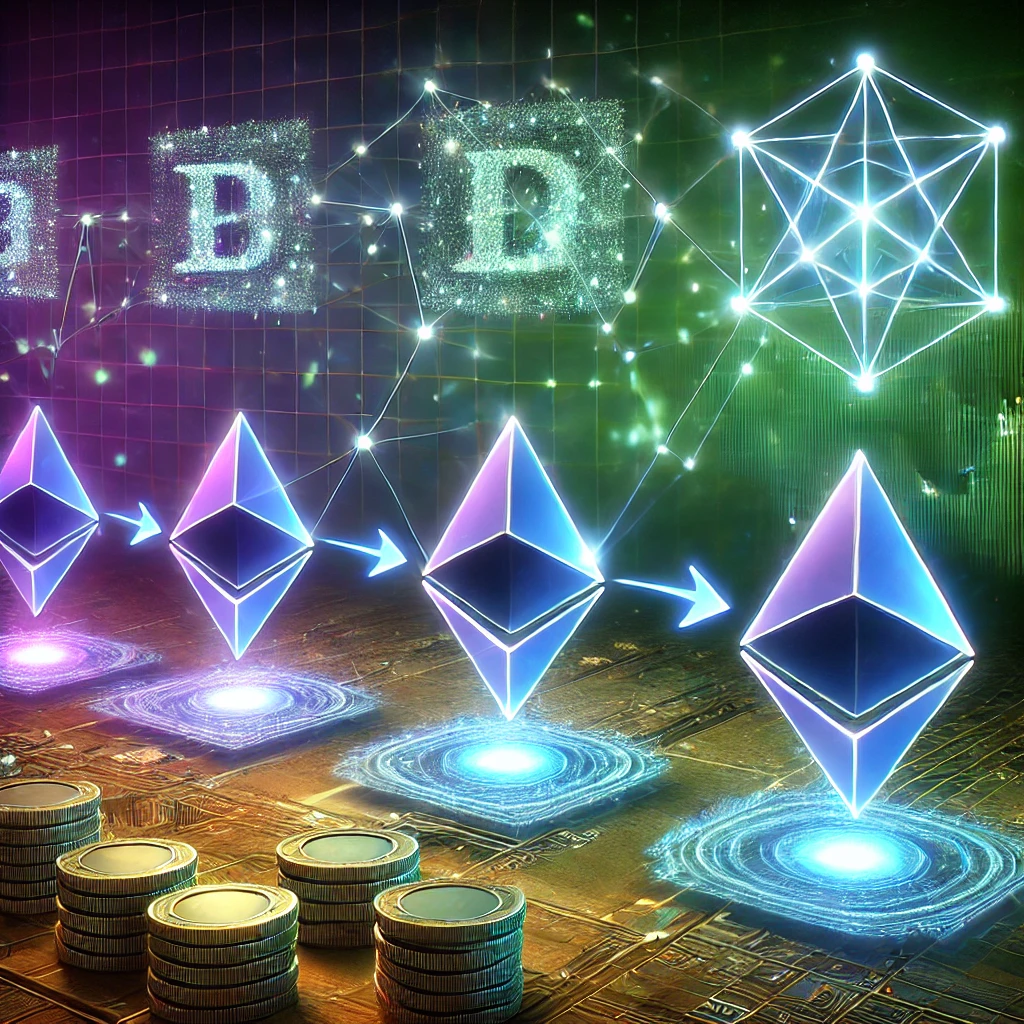
Estimated reading time: 6 minutes
In recent years, blockchain technology has become a significant force in various industries. Known initially for its role in cryptocurrencies like Bitcoin, blockchain has evolved into a versatile tool with applications beyond digital currencies. This decentralized ledger system is gaining traction for its potential to change the way businesses operate.
Blockchain’s transparent and secure nature makes it a valuable asset in multiple sectors. In finance, it offers new ways to handle transactions and data securely. Supply chain management benefits from its ability to track goods and verify authenticity. The healthcare industry is exploring blockchain for managing patient records more efficiently, while real estate professionals are interested in its potential to streamline property transactions.
As more industries begin to understand and implement blockchain technology, its influence continues to grow. This innovative system is gradually becoming an integral part of everyday business operations, hinting at a future where blockchain plays a crucial role in various aspects of our lives.
Table of contents
Examples of real-life blockchain applications
One major example of a real-life blockchain application is the Sony Global Education platform. Sony Global Education is leveraging blockchain to secure and share academic records. This platform allows students to store their academic achievements on the blockchain. It provides a tamper-proof record that can be easily verified by employers and educational institutions.
Sony’s project shows how blockchain can change education by making academic records more secure and easy to access.
Blockchain in supply chain
Blockchain technology helps to make the supply chain more reliable and transparent. It uses a decentralized ledger to record every step a product takes from the manufacturer to the consumer. This helps to ensure that products are genuine and have not been tampered with.
In industries like food and pharmaceuticals, this is very important because it can prevent fraud and ensure that the products are safe for consumers. The transparency provided by blockchain makes it easier to trace products and maintain high standards throughout the supply chain.
Additionally, blockchain reduces the need for intermediaries in the supply chain, which can save time and money. Every transaction is recorded in a secure and unchangeable manner, which builds trust between parties involved in the supply chain.
This means that businesses can track their goods more efficiently, reduce errors, and improve overall efficiency. The ability to verify the authenticity of products at each stage of the supply chain is a significant benefit of using blockchain technology.
Blockchain in healthcare
In healthcare, blockchain technology helps to keep patient data safe and secure. It allows medical records to be stored in a way that only authorized professionals can access them. This ensures that patient information is private and accurate.
By using blockchain, healthcare providers can share patient data more easily and securely, which improves the quality of care that patients receive. The secure sharing of information helps to reduce errors and streamline processes in healthcare facilities.
Blockchain also enhances the medical supply chain by ensuring that medical products are authentic and have not been tampered with. It can track the movement of medicines and medical equipment from the manufacturer to the end user.
This helps to prevent the distribution of counterfeit drugs and ensures that patients receive genuine and safe products. The use of blockchain in healthcare supply chains reduces the chances of errors and fraud, which ultimately leads to better patient outcomes and more efficient healthcare delivery.
Voting
Blockchain technology has transformative potential in voting systems. By leveraging its decentralized, immutable, and transparent nature, blockchain ensures a tamper-proof method for casting and counting votes. Moreover, this significantly enhances election integrity by preventing fraud and manipulation, thereby boosting public trust in the electoral process.
With blockchain, there is no need for physical ballot papers or polling stations. Voters can participate from anywhere with internet access, making elections more accessible and efficient.
Real Estate
Real estate transactions benefit significantly from blockchain-based smart contracts. These contracts are self-executing and are programmed to trigger automatically when predefined conditions are met, reducing the need for intermediaries such as brokers or lawyers.
This automation minimizes the risk of human error and fraud, streamlining the transaction process. The result is faster, more transparent property transactions, with all parties involved having a clear and immutable record of the agreement and its fulfillment.
Energy, finance, and retail
In the energy sector, this technology helps with peer-to-peer energy trading and clear tracking of energy use and production. Consumers can buy and sell energy directly, supporting renewable sources and cutting down on reliance on traditional providers.
Blockchain is transforming financial services. It reduces fraud, speeds up transactions, and lowers costs. Financial IT highlights its use in improving cross-border payments and loan processing.
Retail supply chains use the technology to enhance transparency and customer trust. By verifying product authenticity, retailers can combat counterfeit goods, a major industry issue.
Government, logistics and entertainment
Blockchain technology streamlines government services. Financial IT mentions its role in simplifying identity verification and land registry management, making services more efficient and accessible. The introduction of cryptocurrencies has also boosted the service provision capabilities and accessibility of government services.
In logistics, it enhances the tracking and traceability of goods, reducing delays and losses. This is crucial for industries relying on timely and secure product delivery, such as manufacturing and retail.
The music and entertainment industry uses blockchain to ensure fair royalty distribution. For example, Built In transparently tracks music playbacks, ensuring artists receive fair compensation and addressing piracy issues.
Similarly, blockchain is improving identity management by creating secure digital identities and reducing fraud and identity theft risks. According to Knowledge Nile, its importance for online transactions and interactions cannot be overstated. Additionally, in food safety, blockchain ensures product traceability from farm to table. Knowledge Nile notes that this capability can prevent foodborne illnesses and guarantee safe, high-quality products.
Blockchain technology is driving innovation across multiple sectors by enhancing security, transparency, and efficiency. These diverse applications underscore its potential to transform various sectors. As industries continue to adopt and integrate blockchain, its role in enhancing security, transparency, and efficiency will likely expand, leading to further innovations and improvements across different fields.
Read more: Bitcoin ETFs See Massive $300M Inflows, Boosting Market Sentiment
Discover more from The African Crypto
Subscribe to get the latest posts sent to your email.








